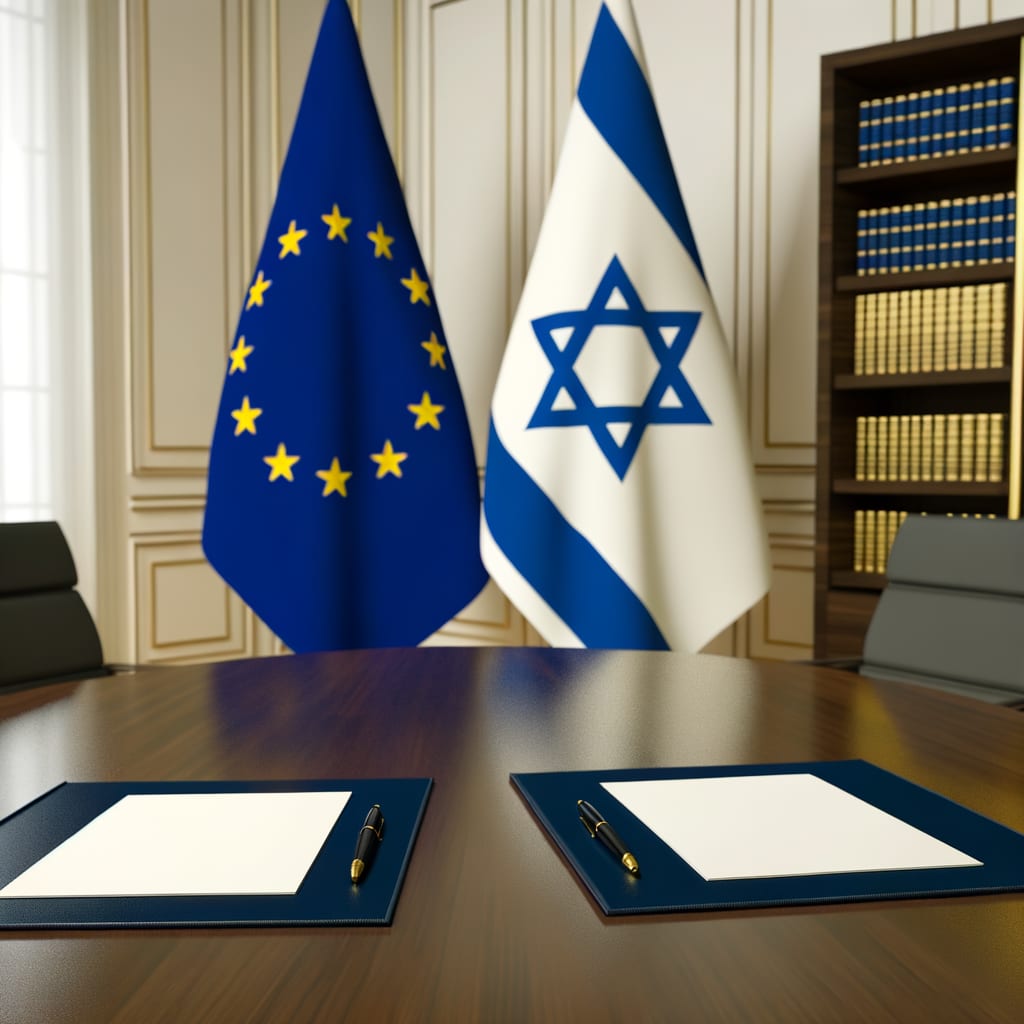European Commission Proposes Sanctions Against Israel Over Gaza Conflict
The European Commission has proposed to suspend free-trade arrangements on Israeli goods and impose sanctions on two Israeli ministers due to Israel's actions in Gaza. The move, if approved, is expected to represent a substantial blow to Israel-EU relations. However, the proposal currently lacks the required majority support among the European Union's member countries to pass.
Background
The proposal comes in response to the ongoing conflict in Gaza, where former Israeli army commander, Herzi Halevi, admitted that more than 200,000 Palestinians have been killed or wounded. Halevi, who stepped down as the Israeli army chief in March 2023, led the Israeli army through the first 17 months of the conflict. His figures align with those from Gaza's health ministry, which has been often dismissed by Israel but considered reliable by international humanitarian groups and the United Nations (UN).
Key Developments
A UN commission of inquiry has accused Israel of committing genocide against Palestinians in Gaza, asserting that Israel has committed four of the five genocidal acts defined under the 1948 Genocide Convention. Despite the forceful language, Israel has rejected the accusation, slamming the commission as a “Hamas proxy” and calling for its abolition.
The European Commission's proposed measures include the suspension of preferential tariffs that would affect 37% of Israeli exports of goods towards the Union, primarily agricultural products. However, Commission President Ursula von der Leyen clarified that the suspension of trade with Israel was not in question. The proposal also includes sanctions on two Israeli ministers and violent settlers in the occupied West Bank and Hamas members.
Implications and Reactions
The commercial measures, if adopted by EU member countries, would increase the cost of certain Israeli imports by 227 million euros, mainly in the agricultural and food sector. The European Commission stressed that the measures would not affect humanitarian programs.
However, Israel has warned the EU against taking action, with Israeli Foreign Minister Gideon Saar stating that moves against Israel would harm Europe's own interests. Saar has further promised an 'appropriate response' to any action against Israel.
Conclusion
While the EU Commission's proposal signals a significant shift in its approach towards the Israel-Gaza conflict, the measures appear unlikely to pass due to lack of majority support among EU member countries. However, the proposals have brought international attention to the humanitarian crisis in Gaza and have increased pressure on Israel to change its course of action.

